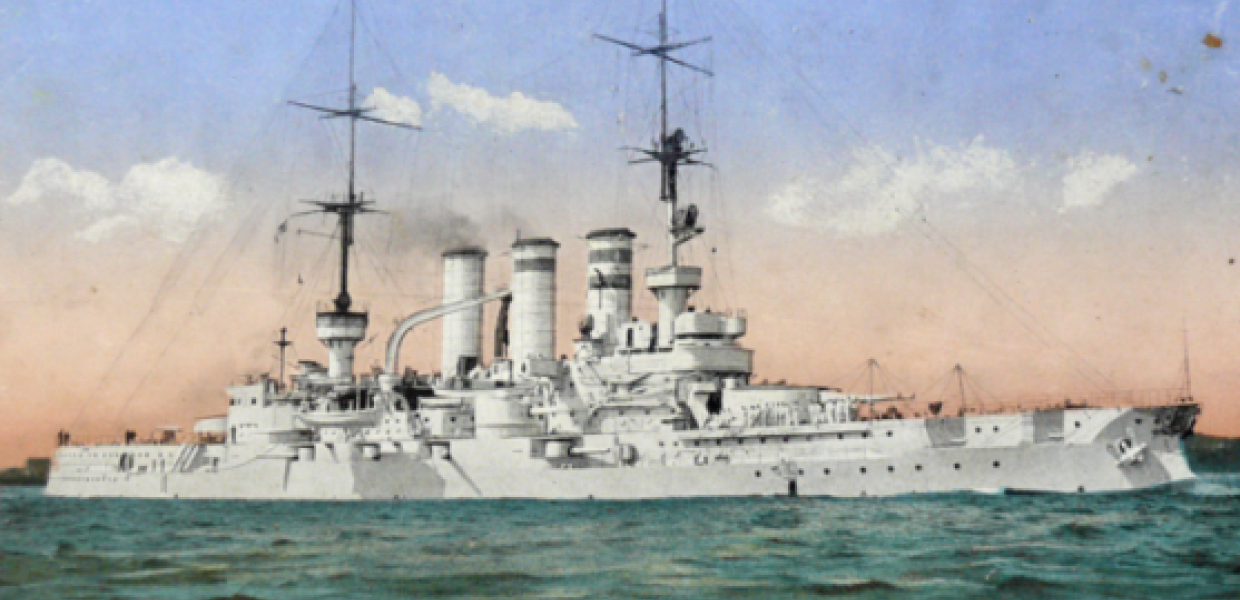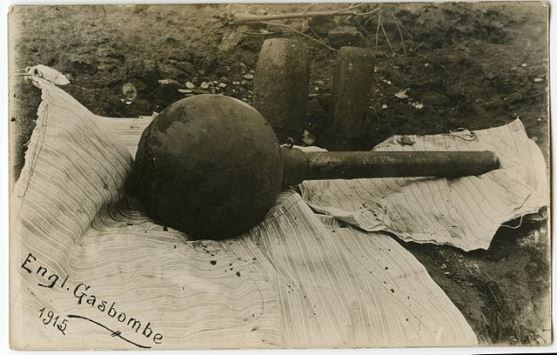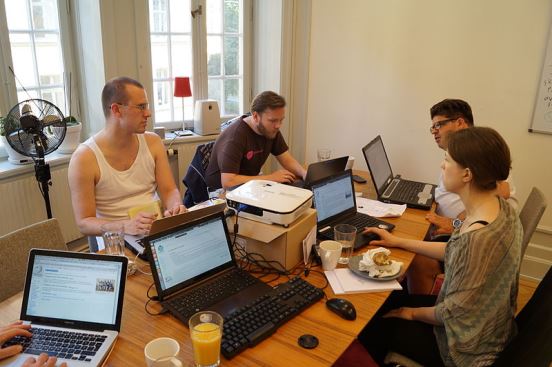Successful parallel WWI editathons held in 7 countries

Guest blog by John Andersson from Wikimedia Sweden.
On Saturday 29 June 2013, a series of parallel First World War editathons was organised all over Europe and Australia by Wikimedia Sverige as part of the Europeana Awareness project. To get people involved, we contacted a bunch of Wikimedia Chapters and individual volunteers, many at the GLAM-WIKI 2013 conference, which just goes to show the great value of physical meetings! We told them about our plans and we were happy to receive great interest and positive responses, not to mention a few great suggestions for improvements.
We had four reasons for holding these events. Firstly, there is always a spike in Wikipedia visitor numbers around the dates of a major event, and so we wanted Wikipedia's articles about the First World War to be as good as possible before the centenial anniversaries. As many articles were created and improved during the editathons, we believe this to have been a step in the right direction.

This postcard was uploaded from Europeana by a volunteer and it now illustrates the English article SMS Hessen. A bunch of beautiful images of old ships was uploaded during the day. Europeana, CC-BY-SA
Secondly, we looked at an editathon as a perfect way of getting representatives from different galleries, libraries, archives and museums (GLAMs) to cooperate with each other and with us, and a great way of engaging experts. The idea was that this would give us a chance to approach the GLAMs and initiate collaborations in order for them to release pictures and work with us in other ways during 2014. At the European level we are already cooperating with Europeana and the Europeana Network in order to reach even more GLAMs. As Europeana's material was frequently used in the editathons, the events further strengthened our partnership with them and the GLAMs participating in their Network. As part of the events, several Wikimedia Chapters also initiated new relationships with their local GLAMs.
Our third reason behind hosting the editathons was that we wanted to increase the use of Europeana's enormous digital collection on Wikipedia and make the community aware of this partnership and the many similarities between our two organisations. Europeana has many thousands of pictures connected to WWI that have the right licences to enable their use on Wikipedia. It would be a shame not to have these amazing pictures illustrating Wikipedia articles. The pictures come both from the public and from Europeana's vast network of content providers. During these events, we showed GLAMs why they should use a truly free licence (suitable for use on Wikipedia) and what the end-users, us Wikip/medians, could do with their content. The editathons were very successful as plenty of images from Europeana were used and contextualised in our articles and we were all happy to see that volunteers explored Europeana's material themselves and uploaded many more great images during the day. Also, there was a lot of work done in London on digitising and working with material from the British Library.

This image is now used on plenty of language versions and it is one of two Europeana images used in a Greek article about Chemical weapons in WWI, and it was uploaded by yours truly in advance of the pilot event we had in Sweden last November. Europeana contributor: Benjamin Hirschfeld on behalf of Christoph Herrmann, CC-BY-SA
Finally, we hoped that a series of events across borders would spawn a lot of great press coverage and really show the collaborative strength of our international community. As a few of the volunteers were interviewed about the events and we also had some nice blog posts written about the event this was partly successful. But more could be done and I hope that all Chapters consider creating lists of newspapers (based on themes such as history, computer science, local media etc.) to which they can send out press releases regarding their events.
We really wanted to have the editathons at the end of June as the week around 29 June is filled with central events connected to the First World War. For example, 28 June was the day that Gavrilo Princip shot the Archduke which evidently led to the starts of the war. The Second Balkan War also started on that date. These editathons really were a testament to how far we have come from the international wartime political situation as so many of the countries involved in the war took part in the joint edit-a-thons, spreading neutral knowledge about WWI.

Hard-working volunteers created and improved a bunch of different articles during the day. Here you see some of them in Stockholm, Sweden.John Andersson, CC-BY-SA
Physical WWI editathons took place in five countries: Belgium, the Netherlands, Serbia, Sweden and the United Kingdom. Successful online editathons also ran in Australia and Greece. All in all, well over 50 volunteers took part in the editathons. The Europeana Challenge, that participants could enter if they used an image from Europeana, was won by Glavkos from Greece after a very impressive and productive day. Glavkos received a 300-euro travel cheque as his prize.
In addition to the 7 countries that organised the events, a couple of others also examined the possibility, but didn’t find a large enough group of volunteers this time. However, the fact that so many Chapters and volunteers found this interesting makes us think that we might be onto something with this type of international and gamified parallel editathon. As such, we are inspired to do something similar again later this year!
After a couple of very successful fashion editathons in both Sweden and the Netherlands (more info on the Pro blog soon!) we are thinking about using fashion as the theme next time. The fashion editathons we've hosted so far have been valuable in involving more female Wikipedians. We hope that you will join us and help us develop our events further. Perhaps we can take another small step towards changing the gender balance on Wikipedia!
